The Young Explorer Programme
The Young Explorer Programme aims to assist young people with a passion for exploration and conservation. It supports them with a financial grant of between £100 – £1,000, as well as offering practical planning assistance and advice. As well as the Explorer team who have a wealth of travel and adventure knowledge, recipient’s can benefit from advice from a wide network of professional Explorer supporters.
We are honoured that the eminent explorer Colonel John Blashford-Snell, who was instrumental in Operations Drake and Raleigh, has become a Patron of the programme.
You can apply by completing our online application form, found in the “How do I apply? section below.
“After 6000km of treacherous cycling conditions, wild animals, a couple of hospital trips and the adventure of a lifetime I arrived in Cape Town, South Africa marking the end of my epic trans-Africa expedition.
This life-changing feat would not have been possible without the endless support from the Explorers Against Extinction Young Explorer program. The program provided me with a wealth of knowledge from past and current adventurers, explorers and travellers alike.
From route planning, to advice about camping and nutrition, or just general safety and wellbeing EAE assisted me the whole way through. The financial grant from EAE allowed to purchase a life saving GPS tracker, which in the case of an elephant chasing after me, or lion getting hungry, I had an emergency panic button.
For me, it was very reassuring that there was support just a phone call away, be it for some advice on the next days route or just some words of wisdom to pick me up on those really tough days. Thank you very much to Rob, Sara and the rest of the team at Explorers Against Extinction for making this expedition a reality. Who knows what the next adventure will entail?”
Jack O’Shea, Explorers Against Extinction Young Explorer
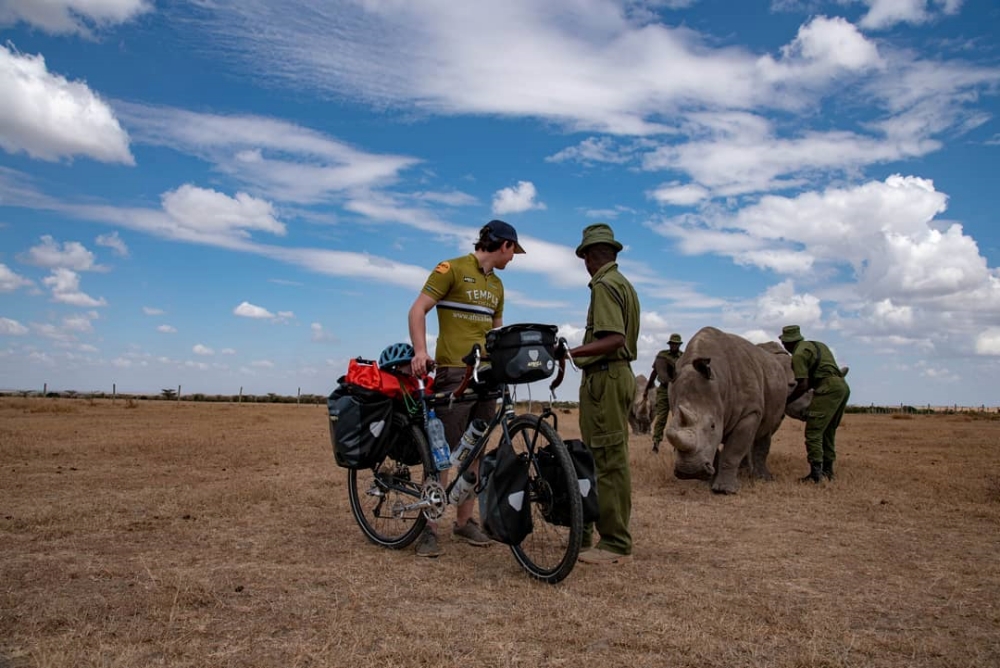
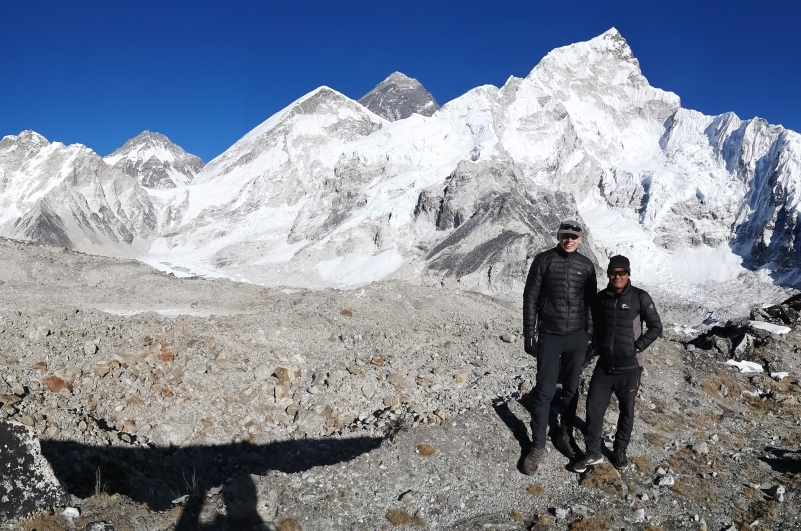
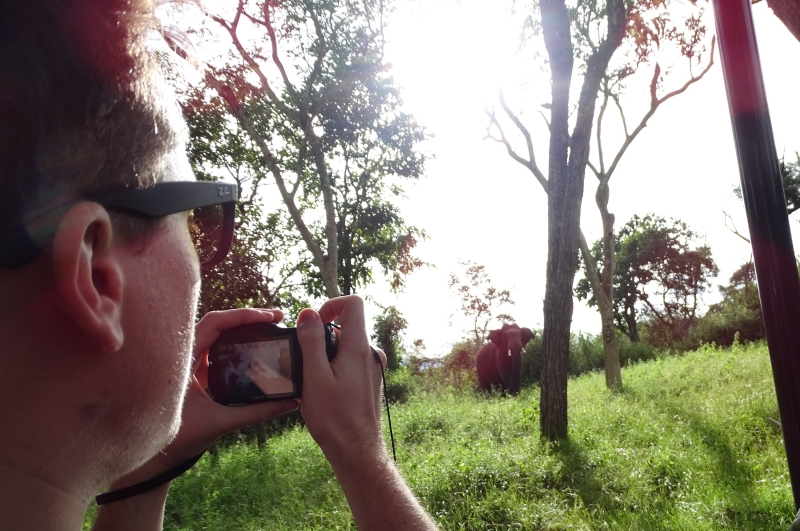
The YEP programme is open to young explorers aged between 18 and 24 years old. The candidates trip should have an element of exploration/adventure OR conservation (or a combination of both).
To be considered for our Young Explorer Programme, please apply through our Online Form.
We ask that you provide a short bio and a clear and concise overview of the trip you are planning and how the Young Explorer Programme could benefit you.
Please bear in mind that we often have many applications to review. We suggest you break your application down into the following short sections:
1.Bio – tell us a bit about you;
2.Objectives – what is the purpose of your trip? Where are you planning to go/how long are you planning to travel? If you are studying please provide some information about your studies and how they relate to this specific trip. Please keep in mind our ethos of exploration and conservation and try to demonstrate in your application how your trip is in keeping with these elements.
3. If you are requesting a YEP grant towards specific requirements, e.g, field equipment, please provide an approximate costing.
Please do not send lots of attachments – a couple of small photos or a map is more than enough to support your application.
If your proposal meets our criteria and we have funds available, we will contact you to discuss the details.
Please note: we do not support trips that are leaving within 3 months of application. We only give a few bursaries per year and we get many applications – please don’t be disappointed if we are unable to support your adventure/studies.
We will put your bio photo and trip profile on our website. This can help to give your project credibility when you approach further sponsors and supporters.
We ask that you keep us updated on your trip / expedition / studies, and share a few photos with us for newsletters etc (WiFi permitting). Please tag @explorersagainstextinction if sharing on social media.
Upon your return, we ask for a report on your trip.
The YEP is separate from our conservation work. It is underwritten through specific fund-raising by supporters of Explorers Against Extinction. These activities range from cake sales to sponsored runs and trips.
Young Explorers 2022
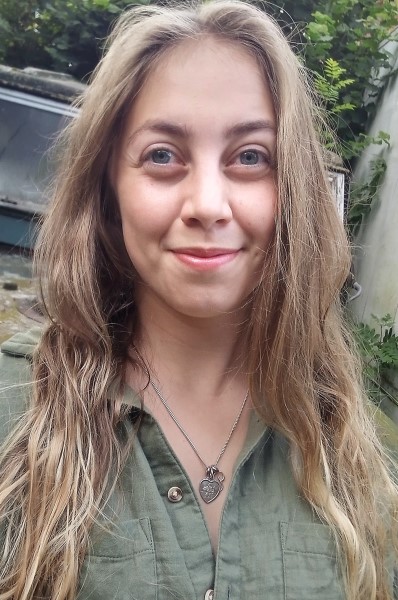
Name: Abbie Hunns
Objective: To gain a better understanding of European ecosystems outside of the UK and how other countries respond to conservation issues and threats to species.
Start: 7th July 2022
Duration: 2 weeks
While in Croatia she will attend lectures/workshops on biodiversity and conservation, learn about the bio-geography of the local area and explore unique cave flora and fauna. She will also learn new survey methods for freshwater fish, birds, snakes and mammals.
About Abbie:
Abbie has a degree and masters in conservation ecology. She finished her masters in 2020 and then worked in Malawi for five months as an intern with African Bat Conservation where she researched, wrote about and surveyed bats. Three months in South Africa followed where she interned at a wildlife sanctuary. Currently she is working as an Assistant Ecologist for the ecological consultancy of the Essex Wildlife Trust. She is keen to expand her ecological skill set to eventually enable her to get a job that is more species focused within the conservation sector where she can assist with, or maybe even organise, restoration programmes!
Young Explorers Archive

Name: Jack O’Shea
Age: 19
Objective: Cycling unsupported from Kenya to South Africa
Duration: 4-5 months
Start: 3rd March 2019
Finished: 14 July 2019
“After 6000km of treacherous cycling conditions, wild animals, a couple of hospital trips and the adventure of a lifetime I arrived in Cape Town, South Africa marking the end of my epic trans-Africa expedition.
This life-changing feat would not have been possible without the endless support from the Explorers Against Extinction Young Explorer program. The program provided me with a wealth of knowledge from past and current adventurers, explorers and travellers alike.
From route planning, to advice about camping and nutrition, or just general safety and wellbeing EAE assisted me the whole way through. The financial grant from EAE allowed to purchase a life saving GPS tracker, which in the case of an elephant chasing after me, or lion getting hungry, I had an emergency panic button.
For me, it was very reassuring that there was support just a phone call away, be it for some advice on the next days route or just some words of wisdom to pick me up on those really tough days. Thank you very much to Rob, Sara and the rest of the team at Explorers Against Extinction for making this expedition a reality. Who knows what the next adventure will entail?”
The YEP supported Jack with a financial bursary as well as advice on logistics, route-planning and security. We arranged for local back-up should the need arise and organised for him to start his journey at Ol Pejeta Reserve in Laikipia, Kenya. Explorers against Extinction donated a trained arms/ammunition Spaniel to Ol Pejeta using funds from its 2017 campaign. Jack stayed for two nights at the start of his trip to assemble his bike and equipment and visit the anti poaching dog unit.
Jack had live tracking through a SPOT Gen3 and could be tracked/monitored by his back-up team. This device also gives a critical line of communication using 100% satellite technology, ensuring that if he is out of phone signal he can always contact nominated people should he need to in the case of emergency.
Jack cycled through Kenya, Uganda, Tanzania, Malawi, Zambia, Botswana, Namibia and South Africa, completing his adventure at the Waterfront complex in Cape Town.
Jack was presented with his Young Explorer Award by Levison Wood (pictured) at the Royal Geographical Society in Novmber 2019.

Name: Joe Parry
Age: 23
Objective: Write a Business and Commercial Plan for the Mariamma Trust, India
Duration: 3 weeks
Started: 20 Oct 2019
Finished: 10 Nov 2019
Joe is a Business Graduate from Anglia Ruskin University. Before taking up a place at Leeds University to study for a Masters in Business Management he wanted to use his theoretical knowledge to help a Conservation Project. We placed him with the Mariamma Charitable Trust in Karnataka State, India for 3 weeks.
The Mariamma Trust helps protect tigers living in Bandipur National Park by mitigating human-wildlife conflict. It does this by a compensation scheme for local families who lose livestock to tiger and leopard kills, providing medical care to local villagers and inoculating dogs and other domestic animals against illnesses that could pass to the wild populations.
While at the project he learnt about their projects by working with the various teams, analysed their procedures and wrote a detailed business plan and e-commerce strategy to assist them in future projects and fund-raising initiatives.
The EAE Young Explorer Programme paid for his board/living expenses while at the project.
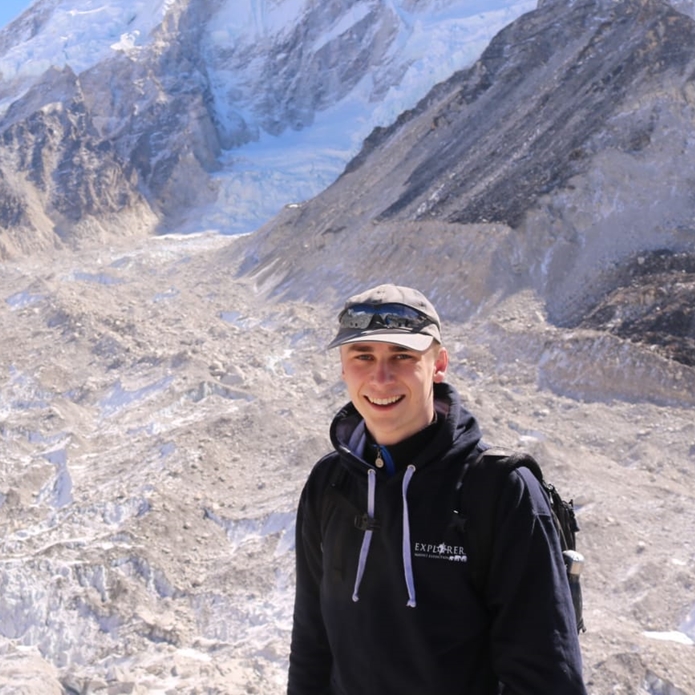 Name: Mark Lewin
Name: Mark Lewin
Age: 22
Objective: Trekked from Kathmandu, Nepal to Everest Base Camp, recreating the route of the 1953 Everest Expedition
Started: 17th February 2020
Duration: 4-5 weeks
Mark walked from the Kathmandu Valley in Nepal to Everest Base Camp, recreating the route of the 1953 Everest Expedition which successfully put Tensing Norgay and Edmund Hilary on the summit of Everest for the first time. The last part of the trip was the classic Base Camp trek. For the first couple of weeks he walked east across the large river valleys that drain the Himalayas.
Our Young Explorer Programme helped with route planning, emergency planning and by contributing to the cost of Mark’s flights.
The trip took 20 days, during which he took over 460,000 steps, averaging over 27,000 per day. He climbed over 30,000 ft (9,200 m) and descended 26,900 ft (8,200 m.)
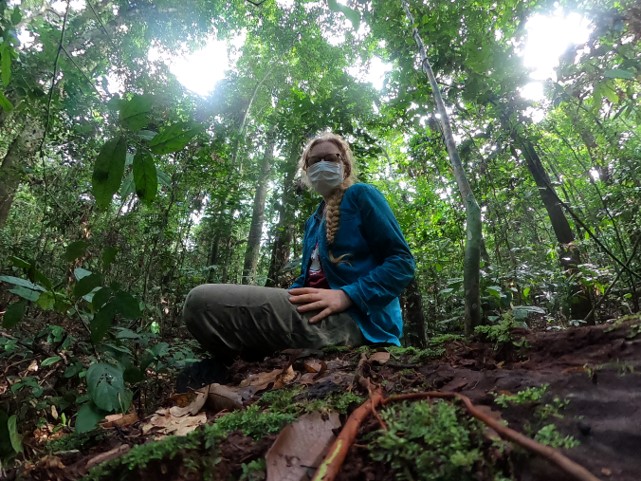
Name: Maisie Ettinger
Age: 23
Objective: To conduct research into Bonobos to help inform conservation management initiatives
Started: 19th February 2020
Duration: 9 months
Maisie worked in the Democratic Republic of Congo at the LuiKotale Bonobo Project in the Salonga National Park for nine months. The study site is a 25km hike from the nearest small village and has no running water, phone coverage or internet access. The LuiKotale site was established in 2002 and has two habituated groups of Bonobos, and a third that is currently being habituated. Maisie took part take part in daily follows to record behaviour and collected non-invasive samples (i.e. faeces), to generate data on their feeding ecology, health and nutrition, development and sociality. A deeper understanding of the animals’ ecology and behaviour will contribute to more effective and efficient conservation efforts of the species.
Our Young Explorer Programme paid towards the cost of Maisie’s flights.
Maisie wrote:
“Salonga National Park, DRC, October 2020. It’s 5.20 am, a chilly 24°C and coronavirus and lock-downs are abstract concepts to me. It should be starting to get light but the heavy clouds arriving above us strain out what little sunshine would have been making it through the rainforest canopy. The gentle breeze that has been rustling the leaves for the last 30 minutes is picking up and the trees are swaying more and more violently. The bonobos, who are currently napping in nests 8 or more metres above the ground begin to weave more branches into their leafy beds to reinforce them against the incoming storm. Normally, they would be starting to emerge into the morning light in search of breakfast but the impending downpour warrants a lie in.
Trainers already soaked through, I’m huddled head to-toe-in waterproofs that do little to keep me dry under the torrent but serve more to keep in a little warmth and keep out the tsetse flies, midges and myriad of other things hungry for my blood or sweat. Under the 35 or so nests I record all the bonobos do, which in their day nests – is not a lot. After waking at 4am and walking 5km through pitch-black jungle, cold, wet and sleepy, I’m wondering why anyone would want to live in a tent, sleep on the hard ground, poop in a hole, have insects lay larvae under their skin and never once in 9 months quite manage to smell fresh no matter how many showers (buckets of river water + scoop) they have.
But two hours later and the storm has flown past, and soggy bonobos head to the ground to find some sustenance. Within a few moments I am tramping through the forest, over logs and under lianas, in the midst of nearly sixty bonobos, who keep a respectful distance but otherwise ignore me. An infant squeaks to his mumma who wandered too far for comfort (no doubt in search of a moment of peace) and she promptly reappears, swings baby onto her back where he sits sidesaddle and watches me following over his shoulder. Another mother pulls at the foot of a tiny female who isn’t quite ready to leave and clings onto the sapling she was dangling from. A big male breaks a small tree and runs past me, dragging his branch behind him until it gets stuck in the undergrowth. He braces one foot against the obstacle and tugs as hard as he can until he finally admits defeat, sits down and scratches his large round tummy for a bit. Up in front someone has found a tree full of fruit and soon the whole community is screaming with excitement and running towards the feast, and deafened, I run with them.
After a leisurely breakfast, the satiated bonobos descend to the ground where mothers begin to groom offspring and besties pair off to pick lice out of each other’s hair. Females who recently joined the community attempt to carry favour with the chieftainess and other highly ranked females by tending to their windswept and wayward manes. Infants, who have escaped their attentive mothers, rampage and frolic, chasing each other up trees, which they regularly fall out of, all the while issuing a deep throaty chuckle. I’m trying to keep up with as many grooming bouts as I can, keep an eye on what each bonobo is doing, record everything they eat and where possible collect as much urine as I can. In any spare moments I sit and watch the bonobos, a matter of metres away, play and groom, and I’ve entirely forgotten the rain, and the insects, and the lack of sleep. And today at least, we stayed out of the swamps.”
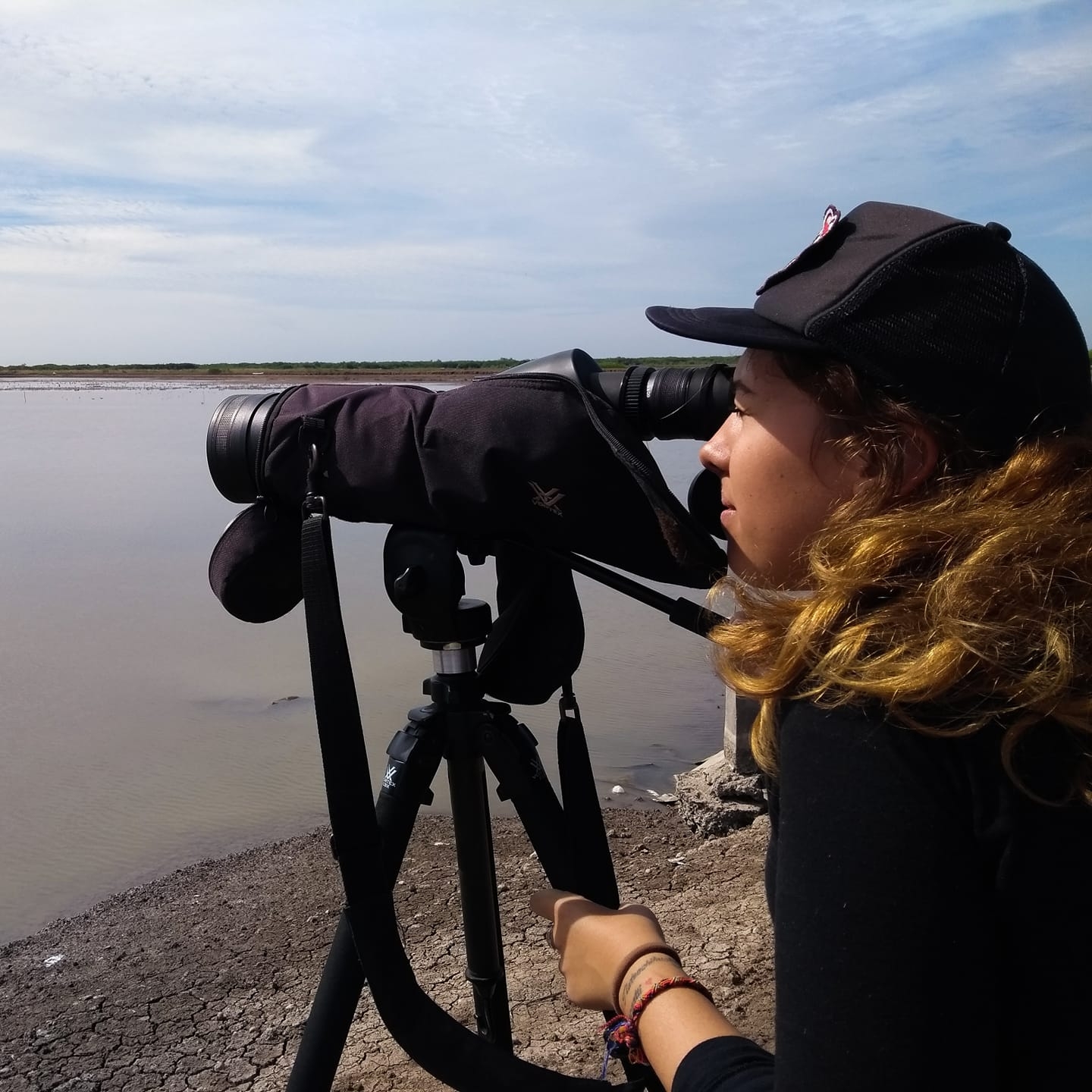 Name: Fernanda Raygoza Diaz
Name: Fernanda Raygoza Diaz
Age: 22
Objective: Write & research a Field Guide of wildlife in Guanacaste, Costa Rica
Started: 7th December 2021
Duration: 7-8 weeks
Guanacaste, Costa Rica is recognized as an important site for the conservation of wildlife, due to it’s high biodiveristy. Fernanda’s project has several objectives: the main one is to make a photographic record of its wildlife (amphibians, reptiles, mammals) in order to create a field guide for the ecosystem. This guide will assist future research in the area by recording data on the species such as footprints, nests, excreta, food sources/shelter etc. The objective is that this guide will be published at the opensource https://fieldguides.fieldmuseum.org/ where it will be accessible to future conservationists and researchers.
About Fernanda:
Fernanda is currently studying Marine Biology at La Paz, Baja California Sur, Mexico. Her thesis is about the migration of seven-gill sharks (Notorynchus cepedianus) in the Pacific, using stable isotope analysis – the first such study carried out in Mexico. Once completed Fernanda wants to do a Masters degree and PhD focusing on the ecology of vertebrates in jungle ecosystems. Her survey at Guanacaste will give her the skill set to move on in her career, while benefiting conservation efforts in the region.
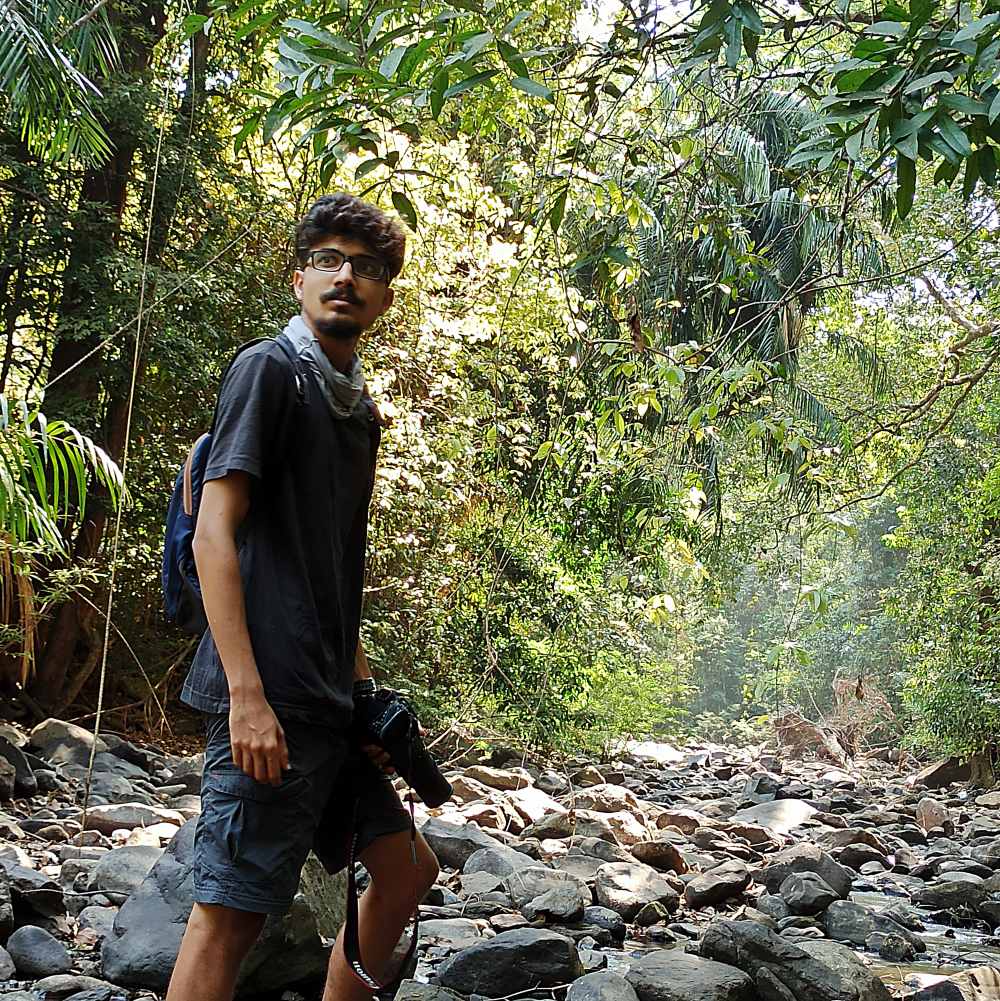 Name: Swanand Patil
Name: Swanand Patil
Age: 24
Objective: To conduct Research on Small Carnivores of Western Ghats, India
Start: 1st December 2021
Duration: 5-6 months
I will be exploring on a bike, staying and camping wherever necessary covering the Western Ghats from Maharashtra, Goa, Karnataka, and Kerala. It’s home to Tropical moist broadleaf/evergreen forest regions. Western Ghats is also a UNESCO World Heritage site and One of Eight hot spots for Biological Diversity in the world. Hills serve as an important wildlife corridor.
These hills have been inhabited by local tribes for centuries, praying certain wildlife species as their god or goddess known as Sacred Groves. These scared groves serve as important conservation hotspots and a lot can be studied in these areas and are spread across the Western Ghats. This exploration study specifically aims to explore the Myristica Swamps, of Bambarde Village in Maharashtra, India. Tropical freshwater swamps predominantly composed of Myristica trees with stilt and knee roots. These swamps are only present in 3 parts of India and are restricted to Western Ghats of India. This proved to be a trigger point of exploration.
The main goal of this exploration is to establish a photographic and geographic record of small carnivore species presence and create distribution maps of the species. Interacting with local communities, and understanding their perceptions regarding wildlife, will help build a strong bond with communities in the future while setting up research and conservation projects. Paper will be published, where it will accessible to future researchers and conservationists. I plan to explore the Western Ghats and establish records and develop a management strategy for the protection and conservation of species outside protected areas.
Since I have started my own NGO, Young Explorer Program will help me help gain credibility with my NGO and connect my research and conservation efforts to future investors and sponsors. Expertise and guidance from YEP experts will help me develop my skillset in the future for structuring and establishing exploration or conservation programs.
About Swanand:
Swanand is a Full Member of the IUCN/ Species Survival Commission – Otter Specialist Group. He has completed his Masters in Wildlife Conservation Action from Bharati Vidyapeeth University Institute of Environment Education and Research, Pune, India. His dissertation was based was about the “Study of Influence of Biotic and Abiotic Components on Activity Pattern of Smooth-coated Otters (Lutrogale perspicillata) using Camera Traps”, and has been studying on otters for the past 2 years. He is interested in behavioral ecology and conservation biology. Swanand is also the Founder and Director of Arcane Conservancy, an NGO whose long-term goal is to study and conserve lesser-known species of India.

